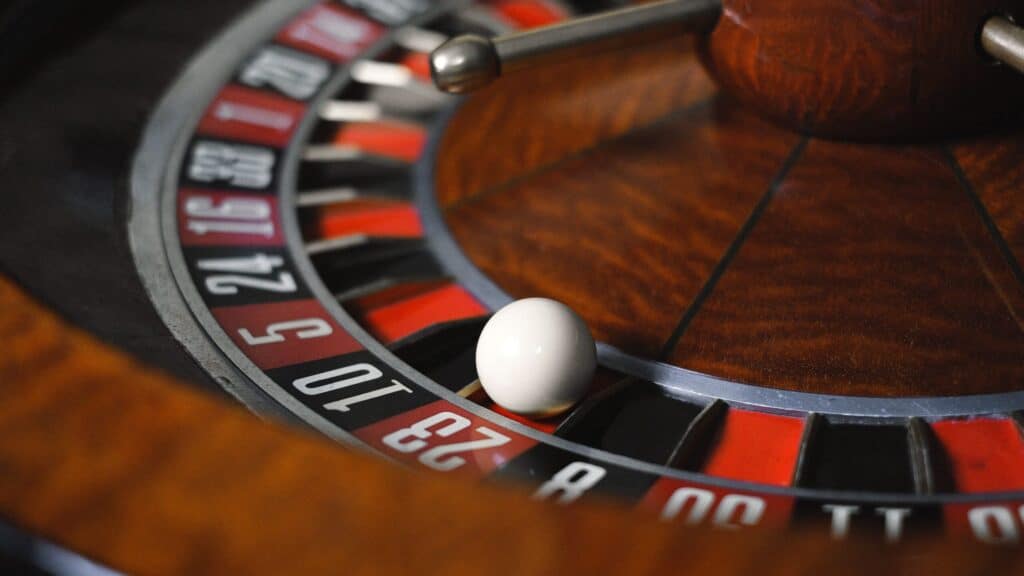Roulette is one of the most iconic casino games in the world. Its simple rules and exhilarating gameplay make it a favorite among both casual players and seasoned gamblers. However, like any game of chance, it’s essential to understand all the factors that can affect your gameplay. One of the most interesting, yet often overlooked, elements in roulette is the concept of wheel bias.
In this detailed guide, we will dive into what roulette wheel bias is, how it can impact your betting strategy, and whether or not it offers players a significant advantage. Additionally, we’ll explore the history of wheel bias, its detection, and the advantages it may offer to advanced players looking to maximize their potential winnings.
What is Roulette Wheel Bias?
Roulette wheel bias refers to a phenomenon where certain pockets or sections of the roulette wheel are more likely to land in the same position due to mechanical imperfections. These biases can stem from various factors such as wear and tear, the design of the wheel, or even the way the wheel is spun. In essence, a biased wheel doesn’t have perfectly random outcomes, and certain numbers or sections become statistically more likely to be hit than others.
While roulette is a game that is theoretically based on random outcomes, wheel bias introduces an element of predictability that some players can exploit. This is one of the reasons why understanding roulette wheel bias is crucial for any serious player looking to develop a long-term winning strategy.
The History of Roulette Wheel Bias
The concept of wheel bias isn’t new. In fact, it has been around since the early days of roulette. In the 18th and 19th centuries, players began to notice that certain wheels exhibited patterns that deviated from pure randomness. These players used detailed observation to track the results and identify sections of the wheel that had a higher probability of landing on specific numbers.
One of the most famous instances of roulette wheel bias occurred in the 1980s, when a team of players used advanced tracking techniques to exploit a biased roulette wheel in a London casino. The team was able to consistently predict winning numbers, which led the casino to investigate and replace the biased wheel. Although the team’s methods were legal at the time, casinos quickly adapted by introducing more stringent maintenance protocols and precision equipment.
How Does Roulette Wheel Bias Affect Betting?
When a roulette wheel exhibits bias, it can significantly impact betting strategies. Players who can detect bias and adjust their bets accordingly have the potential to gain an edge over the casino. While the effect of wheel bias is generally small, it can be enough to make a difference in the long run, especially for advanced players who are skilled at tracking wheel patterns.
Understanding the impact of bias on your betting strategy is essential. A biased wheel means that the game isn’t purely random, and certain numbers will land more frequently than others. This creates opportunities for players to adjust their betting systems and exploit this bias.
Types of Wheel Biases
There are several types of biases that can occur in a roulette wheel. These can be broken down into two main categories: physical bias and visual bias.
Physical Bias
Physical bias occurs when mechanical imperfections in the roulette wheel or ball affect the outcome of the game. For example, if the wheel is not perfectly level, certain pockets may become more likely to land face up. Similarly, a defect in the wheel’s rotor, the ball, or the frets can create inconsistencies in the results. Over time, these imperfections can lead to a bias that favors certain numbers or sections of the wheel.
Examples of physical bias include:
- Worn-out or uneven frets (the barriers that separate each number), which can affect the ball’s trajectory.
- A wheel that isn’t perfectly balanced, causing the ball to favor specific pockets.
- A rotor that isn’t smooth, which can cause the ball to hit certain areas more frequently.
Visual Bias
Visual bias occurs when a player identifies patterns in the wheel’s outcomes that are not immediately obvious to the naked eye. This type of bias is often the result of observation and statistical tracking. While visual bias can sometimes be exploited by skilled players, it’s more challenging to identify and usually requires advanced tracking techniques to detect.
Examples of visual bias include:
- Tracking specific numbers that appear more frequently during certain periods of time.
- Identifying patterns in the ball’s behavior after it is spun and analyzing how it bounces off the wheel’s frets.
Detecting Roulette Wheel Bias
Detecting roulette wheel bias isn’t as simple as watching the wheel spin for a few minutes. It takes careful observation, statistical analysis, and often, a lot of patience. Players who want to identify a biased wheel need to track the results over an extended period of time and compare the outcomes with what should be expected from a fair, unbiased wheel.
Here are some of the techniques players can use to detect a biased wheel:
1. Tracking the Results
One of the most straightforward ways to detect a biased roulette wheel is by recording the results of spins over a significant period of time. The more data you collect, the easier it becomes to spot any irregularities in the wheel’s outcomes. Players who are able to track the results of several hundred spins can begin to spot patterns and identify areas where certain numbers or pockets appear more frequently than others.
While this method can be effective, it’s also time-consuming. It requires careful note-taking and analysis to determine if there is indeed a bias or if the results are simply random variation.
2. Using Technology
Some advanced players use technology to track wheel outcomes more efficiently. Using a laptop or smartphone, players can log spin results as they happen and analyze the data in real-time. This helps identify any biases faster and more accurately than manual tracking. Some software tools also allow players to simulate hundreds or thousands of spins to detect any patterns that may not be immediately obvious.
However, keep in mind that casinos are aware of these tracking techniques and often employ countermeasures to prevent players from exploiting wheel bias. This is why using technology in a casino setting could raise suspicion, especially if you’re not discreet about it.
3. Calculating Probabilities
Once you have collected enough data, you can start calculating probabilities. In a perfectly random game of roulette, the odds of each number being hit are roughly the same. However, when a wheel is biased, certain numbers will appear more often than others. By calculating the expected probabilities and comparing them with the actual outcomes, you can determine if there is a bias at play.
For example, if you track 1,000 spins and notice that a particular number appears 50 times instead of the expected 37, this could indicate a bias. The difference may seem small, but over time, this edge can result in significant returns.
Impact on Betting Strategies
If a biased wheel is detected, players can adjust their betting strategies to take advantage of the patterns they’ve identified. Here are some common strategies that can be used when betting on a biased roulette wheel:
1. Betting on the Biased Numbers
One of the most straightforward strategies is to place bets on the numbers or sections of the wheel that appear more frequently due to the bias. This could mean focusing your bets on certain numbers, groups of numbers, or even sections of the wheel that you believe are more likely to land.
However, this strategy requires precise tracking and a solid understanding of the bias, as making random bets will not yield consistent results.
2. Adjusting Bet Sizes
Another way to maximize the advantage of a biased wheel is by adjusting your bet size based on the strength of the bias. If you notice a particular number or section of the wheel is appearing more frequently, consider increasing your bet size on those outcomes. Conversely, when the bias weakens or disappears, reduce your bet size accordingly.
3. The Law of Large Numbers
The Law of Large Numbers states that, given enough time and data, the observed outcomes of a roulette wheel will approach the expected probabilities. If you’re betting on a biased wheel, this law works in your favor. The more spins you track and the longer you play, the more likely you are to see the bias manifest. However, this requires patience and a long-term strategy to be effective.
Conclusion: Is Wheel Bias Still a Concern in Modern Roulette?
While the idea of exploiting a biased roulette wheel may seem appealing, it’s worth noting that modern casinos take extensive measures to ensure fairness and prevent such biases from occurring. Advances in wheel design, regular maintenance, and tighter regulations have made it much harder for biased wheels to persist. Additionally, casinos are increasingly using advanced technology to detect and eliminate any biases that may arise.
For the average player, roulette wheel bias is unlikely to have a significant impact on your betting strategy. However, for advanced players with the time and resources to track wheel outcomes and analyze data, it remains an interesting aspect of the game that can, in some rare cases, offer an edge over the house.
Ultimately, while wheel bias is a fascinating concept, it should be approached with caution. The best way to enjoy roulette is by playing responsibly and understanding that, at its core, it is still a game of chance.



